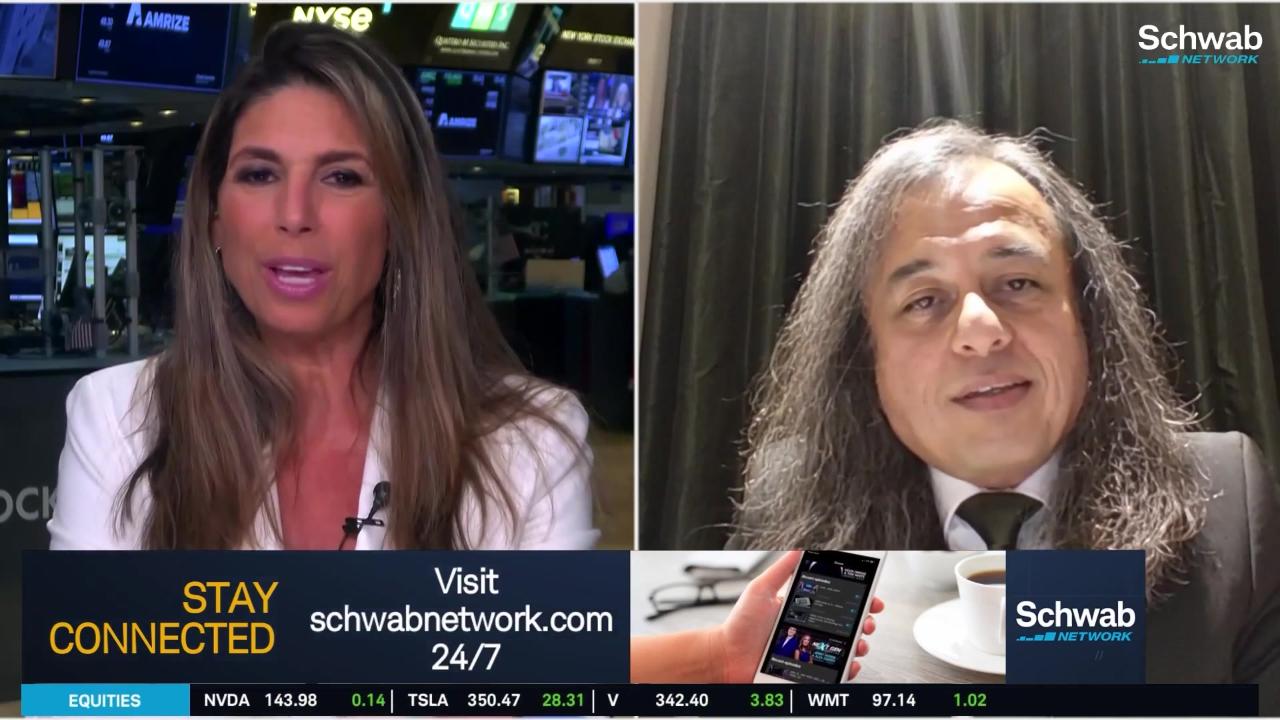- Market Minute
- Posts
- Gorilla Technologies (GRRR) CEO on New Acquisitions and ‘Converting Real Pipeline into Real Revenue’
Gorilla Technologies (GRRR) CEO on New Acquisitions and ‘Converting Real Pipeline into Real Revenue’

Gorilla Technologies (GRRR) is up over 600% over the last year as it dives eagerly into AI technology. Its offerings revolve around cities: its goal is contracts with urban centers. Jay Chandan, Chairman & CEO, joined The Watch List to discuss the latest.
Based in London, its website excitedly lays out diverse categories AI can assist with: traffic policing, improved public transportation, “optimized logistics and supply chains,” “unifying city data for interconnected public services,” and “designing innovative solutions for resilient infrastructure,” among others.
“We’ve been a global force in AI today,” Chandan says. “We’re building systems for governments; we’re helping with mission critical infrastructure.”
In its “Smart Policing Solutions” segment, Gorilla boasts big data analysis with “fast video search, people, vehicle and license plate detection, GIS and Geospatial mapping,” and even “anomaly detection and trend identification.” It claims it can do everything from facial recognition to “behavior analytics,” such as “loitering detection.”
While AI facial recognition may encounter errors from algorithms not sufficiently trained by data sets with a representative diversity of faces, AI facial recognition technology can prove helpful with tasks when accurately deployed like aiding in fraud prevention, locating missing persons, or even enhancing medical care. The Security Industry Association writes that as of January 22, 2025, the National Institute of Standards and Technology (NIST) FRTE program showed “each of the top 100 algorithms are over 99.5% accurate.” This accuracy worsens with lower-quality images, but not by much.
There are U.S. cities that have banned facial recognition use, including San Francisco, CA, Madison, WI and Jackson, MS. Abroad, Gorilla cites “success cases” in Taiwan for traffic violations and crunching data related to “suspect IDs, locations, criminal associations, and evidence.”
There are U.S. cities that have banned facial recognition use, including San Francisco, CA, Madison, WI and Jackson, MS. Abroad, Gorilla cites “success cases” in Taiwan for traffic violations and crunching data related to “suspect IDs, locations, criminal associations, and evidence.”
On the other hand, improving public transportation is a much less controversial pitch. Under “Smart Railways Solutions,” it claims it can prevent safety line crossings and accelerates threat and fire responses. It also thinks it can optimize “people flow.”
It has similar offerings for “Smart Road Solutions” but also offers “high-precision license plate detection” along with “actionable traffic insights.” It leverages existing CCTV camera networks to analyze and monitor its surroundings. City traffic congestion is a long-standing problem that has so far eluded solution – can an AI eye figure it out?
Gorilla wants to have a hand in just about every aspect of city life, from healthcare to building security to traffic to policing to urban planning – the list stretches on. With that much surveillance by a single company in the private sector, data privacy concerns may arise. Security of that data could be another major concern, as it is for the entire industry.
Turning to its financials, on June 18 Gorilla posted 1Q Adj. EPS of $0.23, “marking a sharp turnaround from a basic loss per share of $1.47” last year, and revenue of $18.3 million, up from $8.7 million last year. It also lists $33.8 million in cash on its balance sheet.
“The fundamentals of the business are improving,” Chandan says, “We’re converting real pipeline into real revenue” as it expands into the U.S., South America, India, and more. “Profitability, for us, is no longer aspirational.”
The stock also jumped on June 24, when Gorilla agreed to acquire CNS and CANS in Thailand, which it calls “two of Thailand’s most innovative technology solution providers.” Terms of the deal were not disclosed. Gorilla has a 15-year contract with the Thai government to build their cloud infrastructure, and they also work with the Thai police.
Gorilla wants to do it all. It’s been operating since 2001, and Chandan feels they’re starting to accelerate. Mixing AI with cybersecurity, big data analysis, and a lot of potential use cases, it’s making itself appealing across a broad spectrum. Will that be rewarded by the market, or rejected?
Featured Clips
Tune in live from 8 a.m. to 5 p.m. ET, or anytime, anywhere, on‑demand.
Or stream it via thinkorswim® and thinkorswim Mobile, available through our broker-dealer affiliate, Charles Schwab & Co., Inc
Please do not reply to this email. Replies are not delivered to Schwab Network. For inquiries or comments, please email [email protected].
See how your information is protected with our privacy statement.
Charles Schwab and all third parties mentioned are separate and unaffiliated, and are not responsible for one another's policies, services or opinions. Schwab Network is brought to you by Charles Schwab Media Productions Company (“CSMPC”). CSMPC is a wholly owned subsidiary of The Charles Schwab Corporation and is not a financial advisor, registered investment advisor, broker-dealer, or futures commission merchant.

